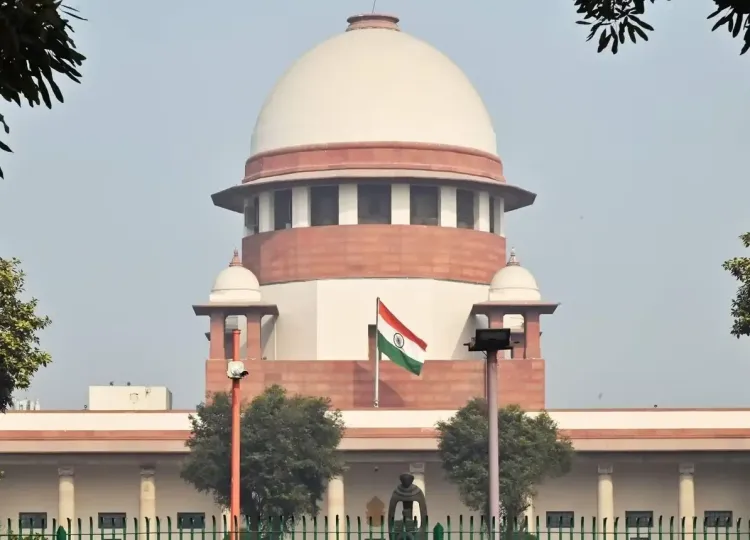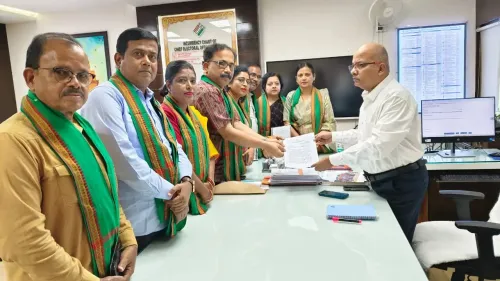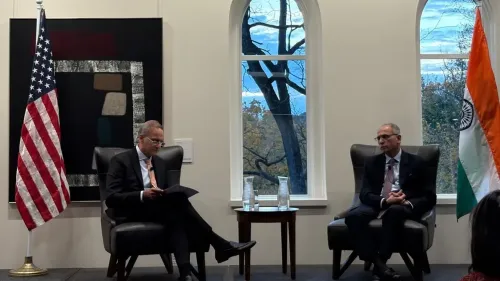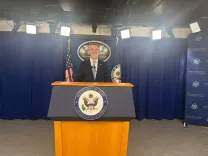'Corrupted beyond repair': Supreme Court affirms cancellation of 25,753 jobs in West Bengal schools from 2016

Synopsis
Key Takeaways
- The Supreme Court upheld the cancellation of 25,753 appointments in West Bengal schools.
- Fraud and manipulation tainted the selection process beyond repair.
- Service of tainted candidates will be terminated without refunding salaries.
- Non-tainted candidates can apply to return to previous roles.
- Disabled candidates will receive support during the new selection process.
New Delhi, April 3 (NationPress) The Supreme Court on Thursday upheld the Calcutta High Court's ruling that annulled 25,753 appointments across teaching and non-teaching positions made by the West Bengal School Service Commission (WBSSC) in 2016.
"It is our view that this situation involves a selection process that is fundamentally flawed and irreparably tainted. Extensive manipulations and fraud, combined with attempts at concealment, have irreparably compromised the integrity of the selection process. The credibility and legitimacy of the appointments have been severely undermined," stated a bench comprising Chief Justice of India (CJI) Sanjiv Khanna and Justice Sanjay Kumar.
In resolving a series of petitions, including one from the West Bengal government, the CJI Khanna-led bench made adjustments to the Calcutta High Court's directives. It noted that candidates already in service will not be required to return any payments received, although their employment will be terminated.
"We see no valid justification to challenge the High Court's directive to terminate the services of candidates found to be tainted, and they must refund any payments received. Their appointments stemmed from fraudulent activity, which constitutes cheating. Thus, we find no reason to amend this ruling," the Supreme Court articulated.
Moreover, it stated that for candidates not identified as tainted, the entire selection process was rightfully declared void due to serious violations and illegalities, resulting in the cancellation of their appointments.
"Once the examination process and its results have been declared void, no candidate can be appointed," the Supreme Court declared.
In a measure of relief for those previously employed and not categorized as tainted, the Supreme Court ruled that these candidates may apply to resume their positions within their former departments or autonomous bodies, with the possibility of creating supernumerary posts if necessary.
These applications are to be processed by the relevant government departments or bodies within three months, enabling candidates to return to their roles without any disruption to their service record, seniority, or entitlements, including increments.
The Supreme Court clarified that the state government or autonomous bodies will not disburse wages for the duration of the disputed appointments.
Disabled candidates will be allowed to retain their positions and receive wages until a new selection process is finalized.
"Disabled candidates will be granted the opportunity to participate in the new selection process with age concessions and other allowances. Similarly, non-tainted candidates will also be eligible for participation with appropriate age relaxations," stated the CJI Khanna-led bench.
The challenge regarding the CBI investigation into the creation of supernumerary posts by the West Bengal government is scheduled for a hearing on April 4.
On May 7, 2024, a bench led by then CJI D.Y. Chandrachud stayed the Calcutta High Court's order canceling school jobs.
The bench permitted the Central Bureau of Investigation (CBI) to pursue its investigation into the alleged scam but limited the agency from taking any coercive actions against candidates or officials.
In a ruling issued in late April 2024, the Calcutta High Court nullified the appointments of candidates selected from expired panels and mandated them to return all salaries received during their tenures, along with an annualized interest of 12 percent, within four weeks.
Additionally, the WBSSC was instructed to commence a new recruitment process, while a division bench of Justices Debangsu Basak and Shabbar Rashidi directed the investigative agency to continue its inquiry into the matter.
Recognizing the state Cabinet's decision regarding supernumerary posts, the court indicated that the CBI may interrogate those responsible for creating posts beyond the actual vacancies. These positions have been under scrutiny due to suspicions of facilitating the illegal recruitment of ineligible candidates.
In July 2023, the apex court rescinded a temporary order from the Calcutta High Court that had dismissed the services of 32,000 primary teachers. The Supreme Court urged the Calcutta High Court to expedite the hearing on the appeal related to the school jobs-for-cash scandal, emphasizing the necessity for a hearing for all involved parties.









